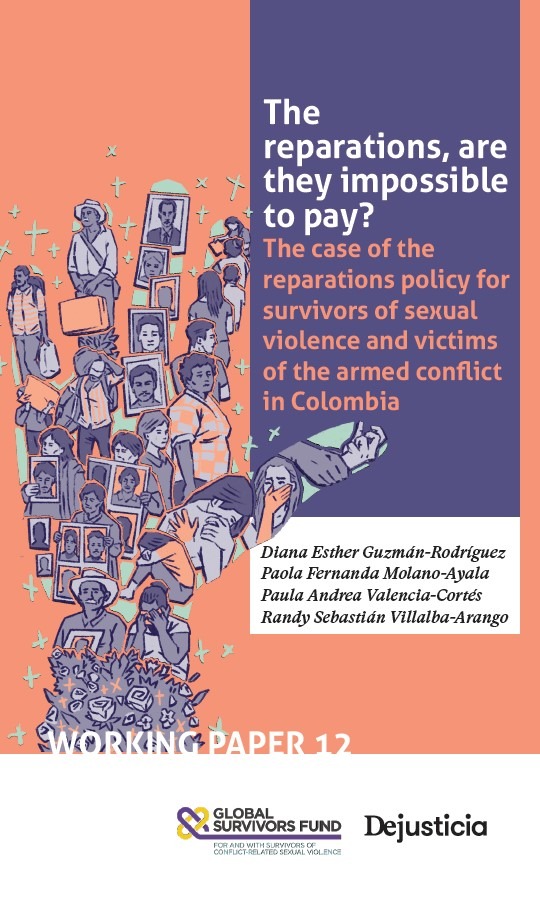
The reparations, are they impossible to pay? The case of the reparations policy for survivors of sexual violence and victims of the armed conflict in Colombia
| Autores: | Molano Ayala, Paola Fernanda Valencia Cortés, Paula Andrea Guzman Rodriguez , Diana Esther Villalba, Randy |
| Colaborador: | Stoffregen, Morgan (Traductor) |
Materia:323 - Derechos civiles y políticos
Clasificación Thema::LX - Derecho: guías de estudio y revisión
JKVV - Victimología y víctimas de delitos
1KLSC - Colombia
Público objetivo:Profesional / académico
Colección:Working Paper
Disponibilidad:Disponible
Estatus en catálogo:Próxima aparición
Publicado:2024-03-30
Número de edición:1
Número de páginas:92
Tamaño:14x21cm.
Precio:$50.000
Encuadernación:Tapa blanda o bolsillo
Soporte:Impreso
Idioma:Inglés
Libros relacionados
Guía Jurídica general. Donaciones entre vivos. Legislación sustantiva civil. La donación en el derecho Romano. Tramite administrativo notarial Colombiano - Buelvas Acosta, Pedro; Porto Calvo, Martha Cecilia; Martinez Diaz, Jorge Andrés
La cesión de crédito: entre las prerrogativas del acreedor y la tutela del deudor - Riaño Saad, Anabel
La cesión de crédito: entre las prerrogativas del acreedor y la tutela del deudor - Riaño Saad, Anabel
Decisiones del Consejo de Estado sobre las comunidades indígenas - Consejo de Estado; Quintero Márquez, María Elisa; Carrillo Espinosa, Eugenio
Reseña
The right to reparation for victims of human rights violations is one of the cornerstones of transitional justice and is a widely recognized principle in both the literature and human rights standards. Despite its importance, administrative reparation programs are often seen as costly and ineffective policies. Nevertheless, the literature on reparations has overlooked the question of the financial feasibility of these programs.
In an effort to address this question, this text contributes to the analysis of the financing of administrative reparation programs, particularly regarding reparations for sexual violence, based on the Colombian experience. We examine how the financial feasibility of the reparations policy created in 2011 was determined, how the budget allocated to reparations has behaved between 2012 and 2022, and the role of reparations for acts of sexual violence within this framework.
This study allows us to identify important methodological, conceptual, and political elements in order to establish what has worked well and what has been problematic in this process. Based on this, we discuss factors that should be taken into account in different contexts to ensure sustainable programs that fulfill the rights of victims of human rights violations, especially survivors of sexual violence.




